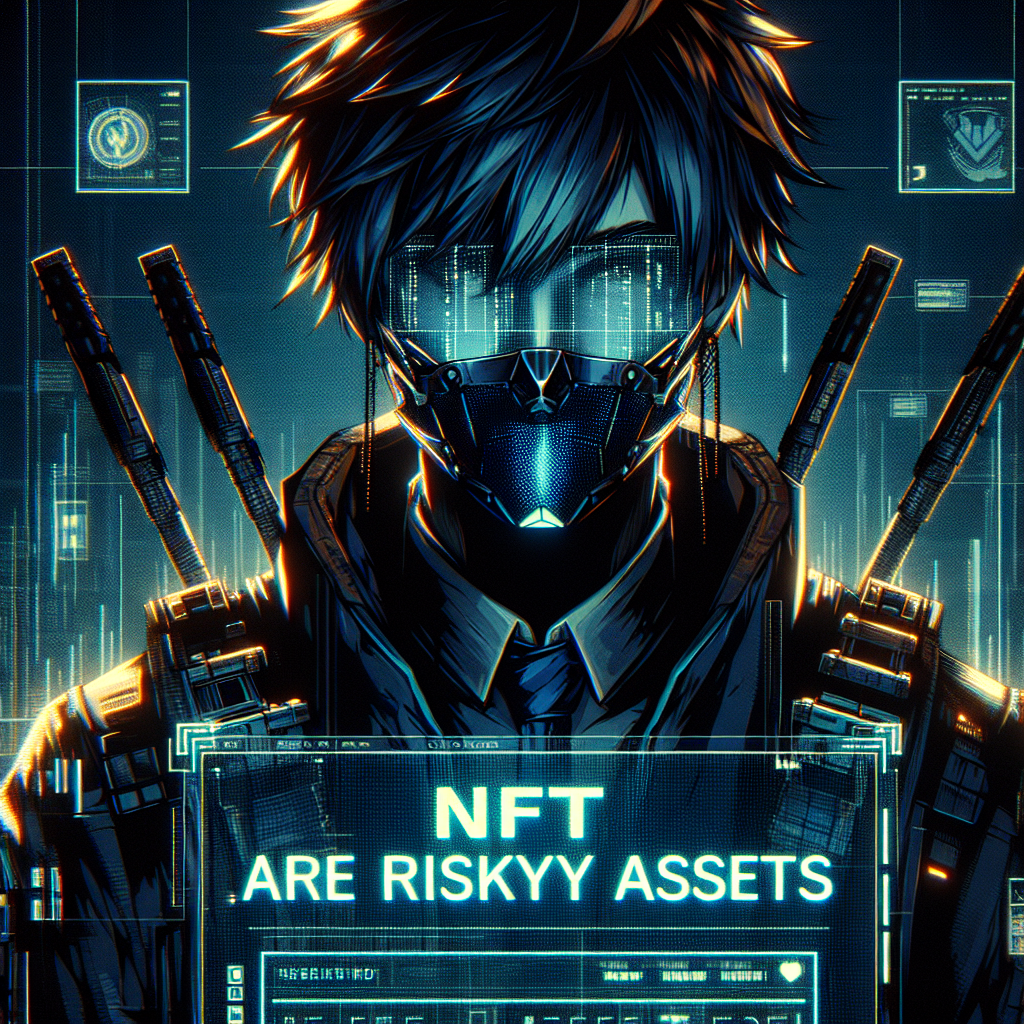Table of Contents
Understanding the Risks Associated with NFTs
Non-Fungible Tokens (NFTs) have taken the world by storm, revolutionizing the way we perceive and trade digital assets. These unique tokens, built on blockchain technology, have gained immense popularity in recent years, attracting artists, collectors, and investors alike. However, it is crucial to understand the risks associated with NFTs before diving headfirst into this new and exciting market. In this article, we will explore seven reasons why NFTs can be risky assets, shedding light on the potential pitfalls that await both creators and buyers.
Lack of Regulation: The Wild West of NFTs
One of the primary concerns surrounding NFTs is the lack of regulation in this emerging market. Unlike traditional financial assets, NFTs operate in a relatively unregulated space. They are often referred to as the “Wild West” of the digital world. This absence of oversight leaves room for fraudulent activities, market manipulation, and scams. Without proper regulations, investors and creators are vulnerable to exploitation, making it essential for participants to exercise caution and conduct thorough due diligence before engaging in NFT transactions.

Counterfeit Concerns: The Proliferation of Fake NFTs
Counterfeiting is another significant risk associated with NFTs. As the popularity of NFTs continues to soar, so does the proliferation of fake tokens. Counterfeit NFTs can be created and sold on various platforms, deceiving unsuspecting buyers into purchasing worthless or unauthorized digital assets. This not only undermines the value and authenticity of genuine NFTs but also poses a significant threat to artists and creators who rely on the sale of their unique digital works. The lack of standardized verification processes and the ease of replicating digital content make it challenging to combat this growing issue.
Security Vulnerabilities: Hacking and Theft of NFTs
The decentralized nature of blockchain technology, which underpins NFTs, is often touted as a secure and tamper-proof system. However, this does not mean that NFTs are immune to security vulnerabilities. Hacking and theft of NFTs have become a real concern, with several high-profile incidents making headlines. Cybercriminals exploit weaknesses in platforms, wallets, or smart contracts to gain unauthorized access to NFTs, resulting in significant financial losses for individuals and platforms alike. These security breaches highlight the importance of robust security measures and the need for continuous improvement in the protection of digital assets.
Environmental Impact: The Dark Side of NFTs
While NFTs offer a new way for artists to monetize their digital creations, they also come with an environmental cost. The energy consumption associated with blockchain technology, particularly the proof-of-work consensus mechanism used by many NFT platforms, has raised concerns about the carbon footprint of NFTs. According to a study by Memo Akten, a computational artist, the average energy consumption of a single NFT transaction is equivalent to an EU resident's electricity consumption for more than a month. This alarming statistic has sparked debates about the sustainability of NFTs and the need for more eco-friendly alternatives.
Market Volatility: Rollercoaster Rides for NFT Investors
NFTs have witnessed unprecedented price volatility since their inception. The market for NFTs can be highly speculative, with prices soaring to astronomical levels one moment and crashing the next. This volatility poses risks for both buyers and sellers. Investors may find themselves caught in a bubble, purchasing NFTs at inflated prices only to see their value plummet shortly after. Similarly, artists and creators may struggle to predict the demand for their digital assets, leading to uncertain income streams. Navigating this rollercoaster ride requires careful consideration and a long-term perspective.

Legal Ambiguity: Ownership and Copyright Challenges with NFTs
The legal landscape surrounding NFTs is still evolving, leaving room for ambiguity and potential disputes. Ownership rights and copyright infringement are two significant legal challenges associated with NFTs. While NFTs provide a unique way to prove ownership of digital assets, the underlying intellectual property rights may still be subject to copyright laws. This raises questions about the extent of ownership conveyed by an NFT and the potential for unauthorized use or reproduction of the underlying digital content. As the legal framework catches up with the rapid growth of NFTs, it is crucial for participants to seek legal advice and ensure compliance with intellectual property laws.
Lack of Liquidity: The Difficulty in Selling NFTs
Despite the hype surrounding NFTs, liquidity can be a significant challenge in this market. While some high-profile NFT sales have made headlines, the reality for many NFT holders is that finding buyers for their digital assets can be a daunting task. The lack of a centralized marketplace and the niche nature of NFTs make it difficult to find willing buyers, especially for lesser-known artists or less sought-after assets. This illiquidity can result in individuals being stuck with NFTs they no longer wish to hold, potentially leading to financial losses or missed opportunities. In conclusion, while NFTs offer exciting opportunities for artists, collectors, and investors, it is crucial to approach this market with caution. The lack of regulation, counterfeit concerns, security vulnerabilities, environmental impact, market volatility, legal ambiguity, and lack of liquidity are all factors that contribute to the risks associated with NFTs. By understanding these risks and taking appropriate measures to mitigate them, participants can navigate the world of NFTs more effectively and make informed decisions about their involvement in this rapidly evolving space.

